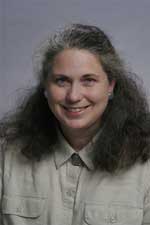Lecture Series Features Dr. Marjorie Snipes
by Tiffany Robinson
Dr. Marjorie Snipes, a UWG anthropology professor, spoke at the 3rd annual College of Social Sciences Lecture series on Tuesday, November 19, 2013 about the creativity of academic “bricolage.” Dr. Snipes received her Ph.D. from the University of Wisconsin in Cultural Anthropology in 1996 and has taught at UWG since 1998. Her talk emphasized the interweaving research conducted on autoethnography, the experience of teaching autoethnography in an undergraduate class and the experience of “storying” as a way of encountering ourselves and others.
 “Stories are not just human productions,” says Dr. Snipes. “They are profound human artifacts. They are intersections and bridges between the conceptual world of the individual and whatever is perceived to exist outside.”
“Stories are not just human productions,” says Dr. Snipes. “They are profound human artifacts. They are intersections and bridges between the conceptual world of the individual and whatever is perceived to exist outside.”
She opened the lecture by expressing the reasons and values of storytelling, and the influential power it holds within the social realm of society.
Throughout the talk, she accompanied her research with a story of her trip to Montana and shared her observations of human interactions. Dr. Snipes included the premise of autoethnography and then elucidated its disguising factors from ethnography. She expounded on her research by sharing her knowledge from articles written by Leon Anderson, Carolyn Ellis and Arthur Bochner.
“By collecting stories, the anthropologist is able to understand the emic prospective,” says Dr. Snipes. “The story connects concepts and ideas into something coherent to the teller and sometimes to the listener. And it is through stories that people make sense of their own lives and those of others.”
Dr. Snipes explained that autoethnography has a strong presence in the anthropological tradition and that dissecting anthropological methodologies into qualitative and quantitative is unfortunate. She challenged that collecting stories should be the same as producing autoethnography by presenting her discoveries from the experiment she conducted in her undergraduate ethnographic field methods class earlier this year. The goal was to evaluate the efficacy of autoethnography as a field tool in the classroom culture.
